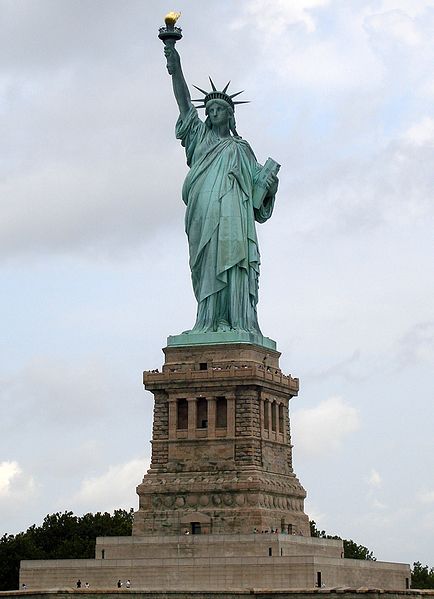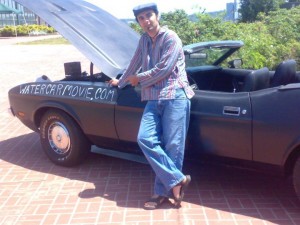” … and up from the ground came a bubbling crude, oil that is, Black Gold, Texas Tea.” From “The Ballad of Jed Clampett” written by Paul Henning
That description of good fortune found by Jed, of “The Beverly Hillbillies” fame, fits to a “tea” what happened in real life about three miles from where I live. The crude began bubbling — exactly 110 years ago today (January 10, 1901) — at place known as “Spindletop.” A very informative article about the history of Spindletop that was written by Robert Wooster and Christine Moor Sanders, and published in Handbook of Texas Online describes the pivotal moment of the World’s most important oil gusher ever:
“The startled roughnecks fled as six tons of four-inch drilling pipe came shooting up out of the ground. After several minutes of quiet, mud, then gas, then oil spurted out. The Lucas geyser, found at a depth of 1,139 feet, blew a stream of oil over 100 feet high until it was capped nine days later and flowed an estimated 100,000 barrels a day.”
It is pretty safe to say nothing of such far-reaching magnitude ever occurred since in Jefferson County, Texas, located on the easternmost Gulf Coast of the Lone Star State. Although I wasn’t around for Spindletop, I bet that not even Janis Joplin’s triumphant return in 1970 to her 10th graduation anniversary at Thomas Jefferson High School in Port Arthur could have matched Spindletop as a colorful and raucous event. And, from what I saw on local TV, Janis coming home freaked out a lot of folks.
The geyser, simply stated, started the modern petroleum industry as we know it. Some of the world’s most important oil companies had their start within a 25-mile radius of Spindletop: The Texas Company, later Texaco; Magnolia, later Mobil and even later ExxonMobil; Humble Oil, later Exxon and ExxonMobil, Gulf Oil, Sun. The companies read like a who’s who list of the petroleum industry.
Some who share my occasional liberal thoughts seem to believe “oil” is a four-letter-word. But the truth is not even those people can with any type of ease live without the fruits of hydrocarbons. While the oil industry made some people filthy rich and others just filthy, many modest livings — read: above average middle class — came from refineries, drilling and other facets of the petrochemical world. Why yours truly has made even a very modest amount of dough off oil and gas wells that I inherited. Certainly not much, albeit the low five-figure range over 25 years.
Most of the folks in the area I grew up in certainly knew the worth of oil as the industry paid for a lot of those people’s pickup trucks, bass boats, nice houses and for the most part a comfortable life. But other than immediate jobs, those who lived in the area I am from and now live in had no clue 110 years ago how Spindletop would transform the worldwide economy.
Those were certainly heady times, back in 1901.
But all was not quiet.
In September at a state fair that year, Vice President Theodore Roosevelt first mouthed his foreign policy mantra: “Speak softly and carry a big stick.” Four days later, President William McKinley was shot at the Pan American Exhibition in Buffalo, N.Y. He died eight days later.
McKinley’s assassin, 28-year-old Leon Czolgosz, was an avowed anarchist although none of the known anarchist groups would claim him as a member and some reportedly thought him to be a spy for the government. Before the month of September was out, a jury convicted Czolgosz. In really swift justice he was executed in the electric chair at New York’s Auburn Prison about a month later, his last words being: “I killed the President because he was the enemy of the good people – the good working people. I am not sorry for my crime.”
The new Republican president, Roosevelt, showed that year that he would not be easily buttonholed as a politician when it came to his actions. There was his bully pulpit rhetoric about carrying a big stick, but after becoming president he also told Congress he wanted trusts curbed reasonably and he also invited noted African American Booker T. Washington to the White House. The latter sat off riots and other unrest in the South.
On Saturday, January 8, 2011, almost 110 years to the day Spindletop blew in, Jared Lee Loughner, 22, allegedly shot almost two dozen people at a congressional meet and greet outside a Safeway store in Tucson, Ariz. Six people were killed including a 9-year-old girl and a federal judge. The target of the shooting appeared to be U.S. Rep. Gabrielle Giffords, a Democrat. Giffords was shot in the head and remains in critical conditions although doctors say she shows encouraging signs that could signal improvement.
Loughner has left a lot of crazy writings behind as he sits in jail. The alleged assassin appears to be anti-government but like Czolgosz also appears to be a lone nut job.
Perhaps in the days ahead we will learn just what were the motivating factors behind these shootings. Was the act because Giffords is a Democrat, or that she is Jewish, or that she supported President Obama’s health care plan even though she supported tough immigration measures and is pro-gun? Did the relentless cacaphony of political argument that passes for entertainment on cable news and talk radio play a part in driving Loughner over the edge?
We may never know. But just as the world turned 110 years ago today in the town in which I reside, giving rise to the world’s most important — although sometimes exasperating — industry so does our planet keep revolving where it seems no amount of good can ever completely snuff out the anger that lives in mankind.
I am painting broad brush here. But sometimes it does a body good to look at the world through the macro lens inward. Perhaps one must speak softly and carry a big magnifying glass.


